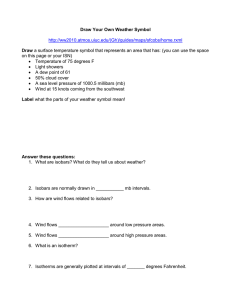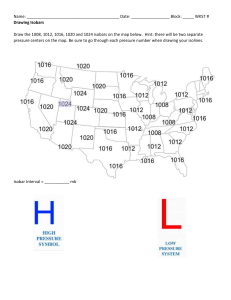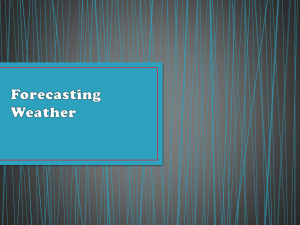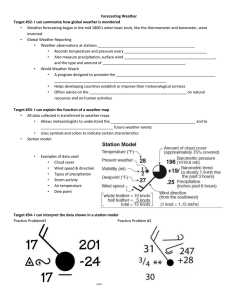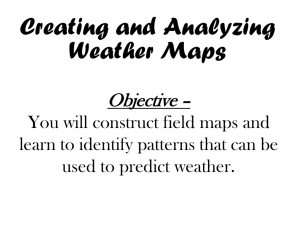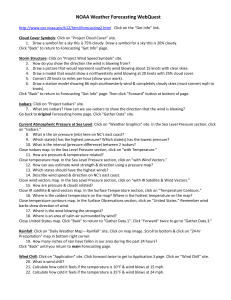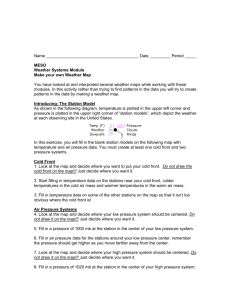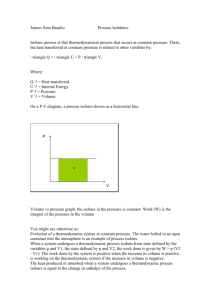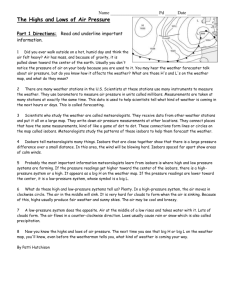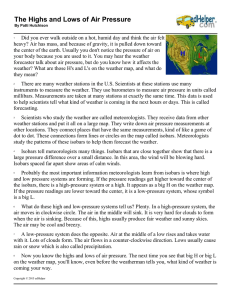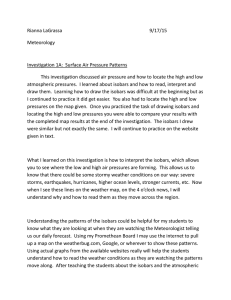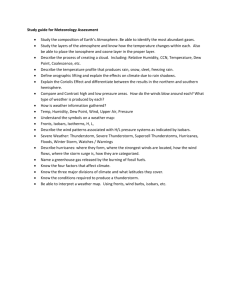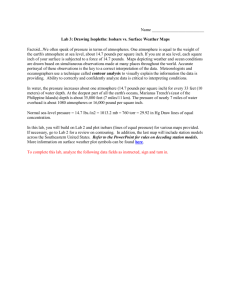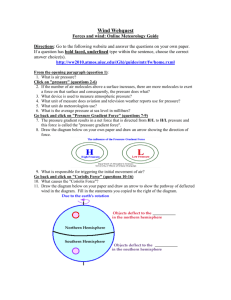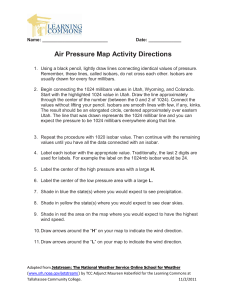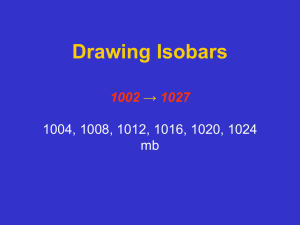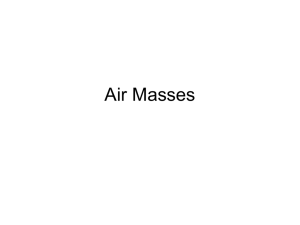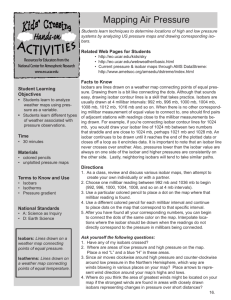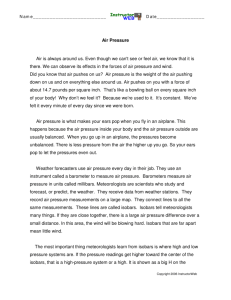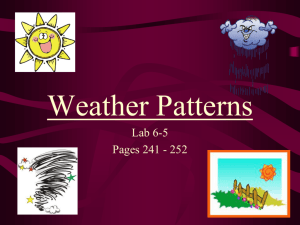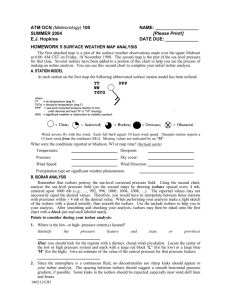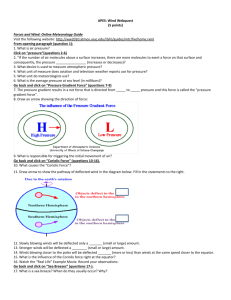8-4 Pressure Maps - LB Star Investigators
advertisement
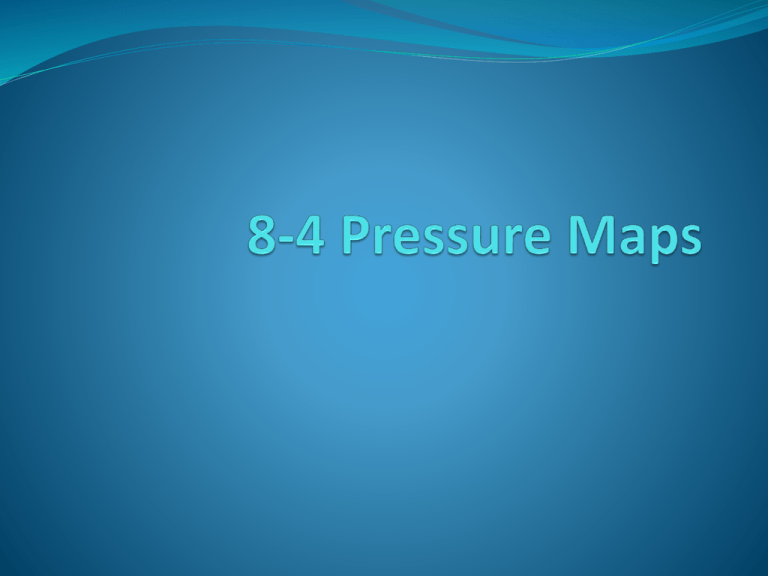
Pressure Maps Take a look at the map and discuss what you notice with your group. Air pressure is important for understanding weather! Labeling Parts of a Pressure Map The numbers- represent atmospheric pressure measured in millibars. The pressure changes from place to place across the U.S. The lines across the U.S. are isobars (iso= same; bar= pressure). The isobars connect all of the recording stations where the atmospheric pressure is the same. Meteorologists know the pressures at the recording stations and estimate where to draw the lines between stations. The letters H and L on the map show where the pressure is highest and lowest in a region. The numbers on the isobars moving away from the H get smaller, and the numbers on the isobars moving away from the L get larger. Looking for Highs and Lows What is the lowest pressure reading on the map? What is the highest pressure reading on the map? Locate the low and high pressure areas on the map. Which direction do you think the wind is blowing, from Billings, MT, to Kansas City, MO or from Kansas City to Billings? Which direction do you think the wind is blowing, from Kansas City to Buffalo, NY, or from Buffalo to Kansas City? Explore Isobar Intervals What is the interval, or difference, between isobar lines? The pressure difference between two adjacent lines is always the same (4mb), but the distance is not always the same. What do you think that tells us? What do you think it means when the lines are father apart? What could the distance between isobars tell us about how fast the wind is blowing? Nature’s Balancing Act When you see areas of high pressure and low pressure on a weather map, think about what happens to balance the difference. Air flows from areas of high pressure towards areas of low pressure. This air movement is called WIND!
